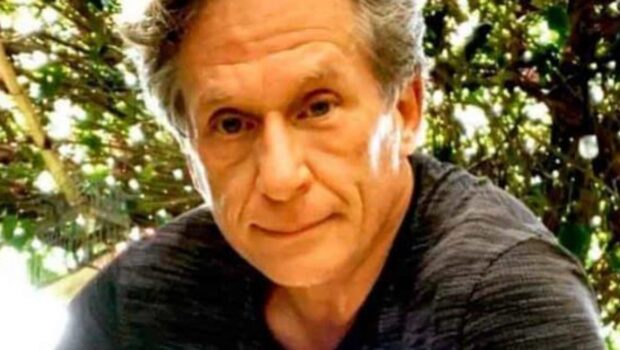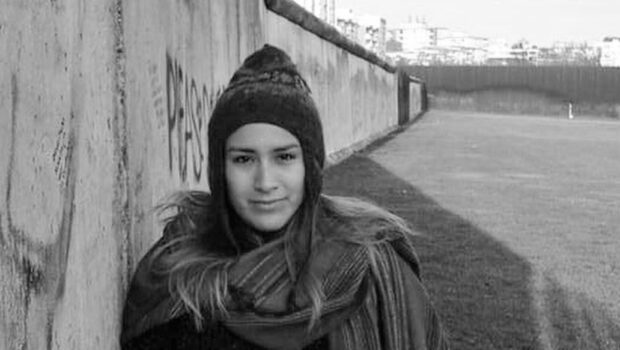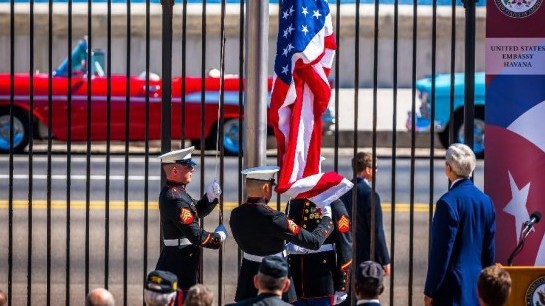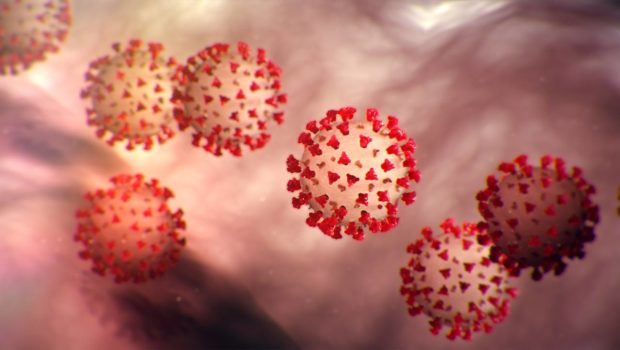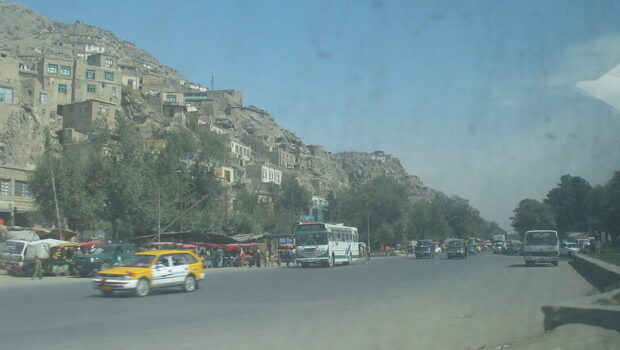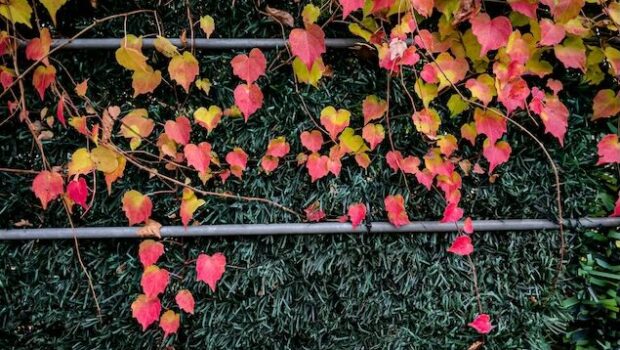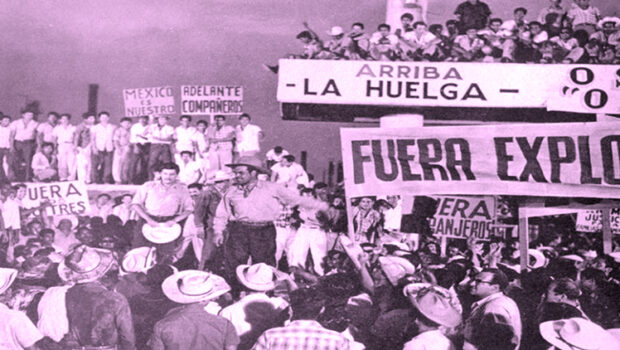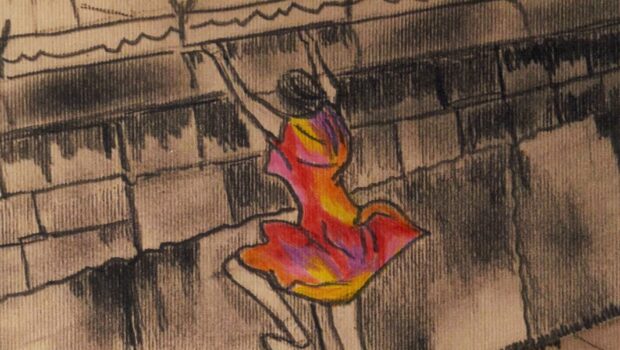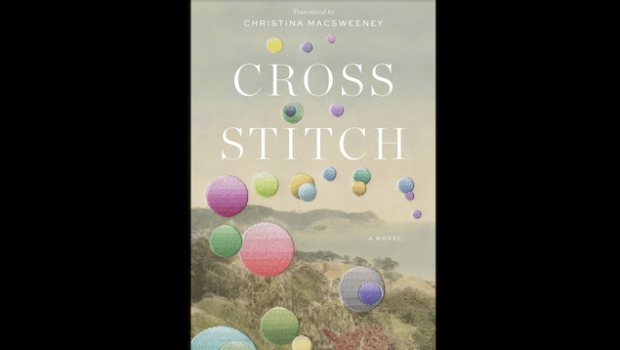Desolation?
¿Desolación?
Adriana Díaz-Enciso
to Sandro Cohen,
and all the friends mentioned here
December 2020. The end of an indescribable year in which everything has happened and, at the same time, in the repetitive routine of confinement, it seems that nothing happens. That nothing will happen ever again. A continuity of grey skies, and light completely hidden by four in the afternoon. It is like walking among ghosts, or being a ghost myself. I have taken to listening to what decades ago was my favourite music. I don’t know if it’s a masochist joy, for delight comes hand in hand with a conviction: “All that is gone now. The world where this had a place, where it was created, where it stirred an echo, doesn’t exist anymore”. I don’t even know if it is a real conviction or just a pandemic delirium. If I enjoy the music, and it stirs an echo in me, it cannot be completely finished. Unless, of course, I have indeed become a ghost.
Is this desolation then? Or is it something else? I need to know. The meaning of the whole of experience must be sought, because some meaning it must have.
Winter brings fantasies of sun worship—to go back, as Giordano Bruno proposed, to Hermes Trismegistus’ original religion, even if he wasn’t exactly who it was once believed he was. Sun worship contains, of course, the worship of the whole of life, the adoration of the world, and I do not know how you can worship a world which seems dead. But the mere articulation of words brings with it the answer: elegy. The song for loss; tenderness (softness, delicacy). What we have lost is so much, and those who have left, who are leaving, are so many, that the song will be magnificent.
One 5th of November
Last November the 5th I woke up happy because it was the birthday of a very dear friend, author Verónica Murguía. Our friendship goes back to at least thirty years. Despite distances, geographic or those imposed by the year’s catastrophe, Vero was widely celebrated. Affection illumines reality from different perspectives. Love is lucid. Celebrating the fact that someone we love dearly is alive in the world makes it possible to let go, for a moment at least, of collective obsessions. Like, for instance, the American elections, which that day had the whole planet suspended in unbearable tension. (And how strange it is, to talk about that unbearable tension some weeks after, and find it real and illusory at once. The world goes round the same; day follows night. We humans go on living and dying, just as we would if Trump had won.)
In the afternoon I found out that Sandro Cohen had just left us: poet, essayist, publisher, translator, professor. The pandemic took him away from us. A friend to whom I didn’t say goodbye. How many will there be? The question tortures me during particularly dark or long nights. Rarely does death give us the chance to say farewell. Sandro and his wife, Josefina Estrada, published my first novel, La sed (The Thirst), and one of my books of poetry, in Colibrí, their heroic publishing house, now disappeared. They were generous and enthusiastic publishers, true book lovers, and I have immense gratitude towards them. At the book launch of La sed at the Claustro de Sor Juana, some twenty years ago, much affection was brought together. Sandro took part, and Verónica, whose birthday we celebrated with such joy the day that Sandro left; and so did Ana García Bergua, a beloved friend also for several decades. Santa Sabina played, led by Rita Guerrero, that other irreplaceable friend, who is already, impossibly, gone. On the drums was Julio Díaz, also no longer with us. My memory of that night is one of sheer joy and profound affection. A sort of innocence.
Sandro, I say, left last 5th of November, leaving us paralysed in disbelief. Where could I reach him to say goodbye, to tell him ‘thank you’, to add mine to the offering of love with which we wish him a good journey?
In the darkened afternoon I sat down with death. I remembered something I’d read at the beginning of the pandemic, I can’t remember where nor by whom, among the flood of information where we’ve been looking for answers: some doctor or scientist, when asked about the seriousness of this coronavirus’ outbreak, answered that we could put it like this: we all were going to lose someone we cared for. The inescapable fact of our mortality, of our absolute helplessness in the adventure of existence, left me very still—for hours.
Some days before I had bought a ticket for a virtual concert, part of the Greenwich Festival of Early Music. A year ago, I attended the festival at St Michael and All Angels, a gorgeous Gothic revival church in Blackheath. It felt like the memory from another life. Now I saw the empty church through my screen. It looked bare. There were only the members of the Fretwork ensemble doing their thing, without saying a word between one piece and another, as if they too were enveloped by sadness, this burden which I still cannot name. I thought that Sandro loved music. In the last email I got from him around a year ago, he told me how happy he was, and mentioned the progress he was making in the piano.
It was a long and dark afternoon, as they are in November in this part of the world, and as it was in my heart. Just like the musicians, I didn’t have words. Only music seemed to offer answers, if not comfort. Later and without knowing why, I dug up from memory Peter Murphy’s Deep and listened to it. That afternoon the notes of everything I listened to were transmuted into vivid memories. Like listening to the same album with Rita. Once we took it (in a cassette) to Puerto Escondido. We talked of the songs, and of Murphy’s beauty. Rita had revealed him to me: the singer, and his beauty. I have a clear memory of that trip: watching the trees through the hotel’s window, listening to that album precisely, and suddenly realising that the trees were behaving the way they did on magic mushrooms’ trips. Only that this time there were no mushrooms involved. Not even in those years of experimentation did I try them much. It scared me; I grew up with an all-powerful fear of madness. But in that trip of another kind—to the beach—I realised that what the magic mushrooms had revealed to me was simply the weave of reality, and that those doors of perception (Blake’s, taken up by Huxley and then by Jim Morrison) are always there, within our reach: no need of intermediaries. Decades later, Buddhism and meditation would confirm it.
This 5th of November 2020, immersed in music, remembering that trip, and with Sandro and Rita present in their silence from the other side, I also remembered Paco Barreda, a friend from my early youth in Guadalajara, my hometown. Paco also left us this year. It wasn’t the pandemic that took him away, but it did stop his family and friends from saying farewell with the closeness that grief demands. I didn’t say goodbye to him either. Paco was a tireless curator and cultural promoter, infinitely generous, and Guadalajara’s cultural life is greatly indebted to him. He was himself an artist, creator of fascinating objects animated by his lucidity, curiosity and humour. For decades he organised in his house the most formidable New Year parties ever. We danced to the best music, all of it represented in his collection, surrounded by the marvellous artifacts he built with found objects.
It was in one of those legendary parties, by the way, that I met Rita. We were so very young then. I often thought of myself as carrying a heavy load of torment, but the truth is that we both were brimming with future and life.
I also remembered walking through the Jalisco countryside with a group of friends, Paco among them. I was afraid of some cows and a bull that were roaming around. The next image in my memory is of many hours later, with psilocybin already doing its work and us lying under the sun, and suddenly realising that the cows and bull were lying a few metres from us, and fear had gone. We were all in peace.
From the many of us who danced and laughed in those parties of perfect happiness, which were the living reflection of Paco and his family, several are here no more. I don’t want to wonder how many more have departed without my finding out. And yet, I do.
That November afternoon my flat was little by little crowded with those presences. Outside the fireworks were bursting. In the United Kingdom, the 5th of November is Guy Fawkes’ Night (remember, remember, the 5th of November). Fireworks and, in years without pandemic, popular parties in parks, with bonfires where the effigy of the Catholic rebel who tried to blow up Parliament in 1605 is burnt. In the gloom and sadness, the explosion of those pagan lights was also joy; rebel joy: that, at least, was something that COVID-19 couldn’t take away from us. And in my heart, an ember kept on gladdening for Vero’s birthday (‘the fireworks in England are all for you’, I tell her every year), for knowing her happy, for the torrent of love that she was receiving.
A tangle of conflicting emotions, and a recurring question: what for? What for, literature, music, anything? What for, if a catastrophe comes, any catastrophe, and snatches us away from the world, without time to say goodbye, with nothing in our hands but this impotence?
A madman
On the second Sunday of December, I dared to go out to see a friend, because I’m well aware of the fact that the prolonged isolation is little by little blurring my ability to understand reality. We agreed to meet in Finsbury Park, halfway between her home and mine. I wouldn’t go too far; it seemed to be a safe plan. Perhaps we all thought the same, suspecting what would become reality a few days later: that they would send us back to the top tier of restrictions due to the pandemic, so there were a lot of people in the tube, though it was a Sunday morning. As I waited for my friend outside the station, I saw out of the corner of my eye a man hurriedly approaching me.
He was coughing; a deep, violent cough… and forced. Terror didn’t allow me to see his face; the memory is a blur. He came to me coughing, said I must stop smoking, and left in the same haste as he had come, while I slipped like a mouse through the wall and a notice board’s metallic structure. A tube staff member asked me at once if I was OK and said, ‘he did it on purpose’. I wasn’t well, and she noticed. I went into the station with her and burst into tears. It was sheer terror. ‘He’s killed me’, I thought; ‘that man whose face I didn’t even see.’ My pretty facemask, with its William Morris-like design, though it isn’t, seemed to me the most useless thing in the world.
The equanimity of the woman who came to my rescue comforted me; it also intrigued me. She was a slim black woman, spirited, cheerful: I could see that despite the facemask. I asked her about how exposed she was, as public transport staff, to incidents like that. She confirmed that, indeed, she and her workmates deal continuously with all sorts of aggression, and with madness, which is sometimes the way loneliness is embodied, particularly in big cities. I had told her that I was afraid to get ill because I live on my own and am among the Covid vulnerable people. She said she was vulnerable too, because of an immunologic problem. She has two children. Her mother, who suffers from MS, had Covid. She was in hospital for seven weeks, but is recovered now. Years ago, she also had flu swine. ‘How do you do to control fear?’, I asked her. ‘We have to live’, she said. ‘We cannot let anyone like that madman stop us. You’re going to be all right; you’re wearing your facemask. Life is risk. We have to live.’
There they were, two poles of human diversity: a stupid and cowardly man, a kind and courageous woman; one among the innumerable anonymous heroes who some way or another risk their lives every day and even so honour with grace and kindness their commitment of service to others. There was no doubt as to on which side the meaning of life lay. In the middle, there was me, terrified, reduced to tears by fear and a sense of impotence which, I suspect, was owed not only to the recent aggression, but to the whole experience of the pandemic, the slow experience of this grim year.
The day was grey and cold. My friend and I walked through the park in the drizzle; we ate at a café with outside tables somewhat shielded from the wind. I was carrying my disposable wooden cutlery, just in case. I came back home by bus. A woman boarded it, staggering. I don’t know if she was drunk. Her legs were bare despite the cold. She had no facemask. When the driver told her to put it on, she said she would with a lost gaze and went to sit at the back. Then she coughed. I came off the bus right away and walked for a long while in the darkened afternoon before I finally got home. I felt in every cell of my body that Evil had descended, and had its sights set on me.
At the same time, I couldn’t stop wondering who was the man who had coughed on my face ‘as a joke’; why he had done it; how often he did it; whether he planned it or the prank came spontaneously. How old was he? What was his name? Where did he live? How he started his days, and how he finished them. If he had Covid and had infected me, if I got sick or, indeed, died, our interaction, which had lasted a few seconds, would have been of the most intimate imaginable kind: murder. But even if there was no contagion, that interaction had made him violently enter my life. It had thrown me into the well of fear and desolation. My reaction—the fear he had sought to sow—would have amused him, would have given him some momentary satisfaction, but I held no doubts that he too lived in a form of torment, in some form of soul-exile which I truly could not imagine. Probably most banal, which is perhaps the worst thing of it all.
Mortal
There is nothing like worrying for those we love to ease concern about oneself. A few days after that lugubrious Sunday, the top tier of restrictions in England we’d seen coming had come into place; the rate of contagions raised; a new variation of the virus was registered and, in Mexico, two persons I love seemed to have developed symptoms. A few dark days came, in which it didn’t seem possible to even articulate my sadness, my anxiety, behind which stretched a strange landscape of silence, of some acceptance which wasn’t neither calm, nor wise or judicious, but didn’t stop being nevertheless part of the unquestionable weave of reality.
As I write this, surrounded by that silence and the depths of the loneliness which is only experienced in misfortune, we’re a week away from Christmas. In the United Kingdom the Beast’s government keeps on sending us conflicting messages: while in the maximum state of alert, only three days ago we were being told that people would be able to gather at Christmas, ‘with all due precautions, with responsibility’. And after the festivities, which will be hardly festive at all, a new lockdown may come. As if the virus knew anything about Christmas. After a public battle to make the government take a clear and responsible stance, the cancellation of Christmas gatherings was announced. If they aren’t cancelled, we know, more people will die. But the Beast’s ambivalence, which has already cost so many lives since the beginning of the pandemic, is unforgivable.
Demonstrators against the new restrictions are out in the street again. With no facemasks. Laughing, shouting or provoking, armed with no other weapons than stupidity or blindness. What is happening here replicates the demonstrations all over the world, and things are becoming ugly. I can barely understand this invocation of the freedom to infect others and get infected, but in the scenes of the protests I recognise an obstinate facet of the human spirit, and the rendition of one’s own faculties that takes place so often under cover of collective action. I read that aggressions like the one I was a victim of last Sunday have been quite common this year against employers in public places, and in particular against the police: people who coughs on or spits at other people’s face wielding the Covid threat. I feel like crying again. I can’t take any longer the exhaustion: mental, emotional, which clings to the body and becomes then physical.
Since the previous lockdown, I’ve spent weeks exploring the streets and parks around my neighbourhood, this London suburb which the pandemic threw suddenly out to the edge of the world, seeking solace in light, when there is any; in a bird, a cloud, the now bare tree branches; finding harmony in some houses, in unexpected streets, in the winter light upon the facades and the sun so low it blinds you as you walk. One afternoon I found an attractive 19th Century church, the spire of which I had seen from afar many times, and I was almost happy. But I miss London, the real London, and I wonder with hallucinatory anxiety if I will ever inhabit it again. I miss getting lost in the city, among fellow humans. I can’t take it anymore, I think often, without drama or fuss, contained by silence, and I’m scared.
Then I quieten down and ask myself, fear of what? Covid or not, I’m going to die one day, anyway. Just as one day, suddenly, around a month ago, Carlos Warman died. Musician, composer, and a very present friend in a past time of my life. I met him by chance in a corner of the neighbourhood we both used to live in, the Condesa, when I visited Mexico three years ago, and that, without our knowing, was our farewell. Haven’t I always known that I am mortal, that we all are, that human will can do nothing against that shared destiny? The pandemic is only forcing us to face it without hideouts, without distractions.
It isn’t pleasant, but despite my aversion, I feel a simultaneous urgency to descend, to go deep into that tunnel, to see face to face the fear and loneliness which come with the presence of death, hold their gaze, be reconciled, and fear no more. Aren’t all the friends I’m remembering now keeping me company? Isn’t it true that Armando Vega Gil, who didn’t wait for death but went to look for it instead, who never knew of the pandemic and whose thoughts about it I’d so much like to hear, accompanies me too? What we have ahead is a door opening to the existential dilemma of being, on the face of death, human. What am I going to carry in my spirit in the final moment, apart from fear or, if I am very lucky, even in its place? It has to be something tougher, and more luminous.
As a species, we will go on reacting in ways both extravagant and predictable, to the pandemic and to everything else. While some of us tend to be paralysed with fear, there are others who seem to have no other solace than instant gratification. The last night before we reached the restrictions’ tier 4 and pubs and restaurants closed again, Soho streets were teeming with hordes that went out to drink, sing at the top of their voice, shriek, defy… what? Whom? The instinct of survival? The protection of others which is the last and, at the same time, the primordial stronghold of our humanity when tragedy strikes? In the screen, that window to the world which for most of us has now become our only access, I could see the Soho I haven’t visited for what feels like ages turned into a true no man’s land. The decadence, the nihilistic abandon which always come along the infinitely repeated end of the world. An echo, no matter how much the idea makes me wince, of my own question: what for?
The answer from those who are creating the vaccines is very clear. There is hope there, purpose, even a form of fervour, a word that isn’t often matched with science. These two human groups seem to belong to a different species, but they are not. They are both our mirror.
Politics, it goes without saying, will go on knocking us over. On top of the tension of a Christmas with pandemic, in the UK we have that of Brexit, which will take effect with the new year. There will be disasters and reforms, peaks and precipices, as it has been throughout the whole history of mankind. Tyrants who fall and others rising. The question that matters, though, is still one of meaning. How to live and how to die, how to reach a dignified life and death without dodging the central dilemma of our species.
We shall dance
Early nightfall comes with its own miracles. As I write at my desk, I have seen the full moon rising outside my window at 4.00 pm. It has been my companion and my witness.
Darkness and silence are good allies for playing with the relative nature of our own time. I think, for instance, of the Spanish flu, which spread devastatingly all over the world in 1918. It coincided with the end of World War I. Let’s just picture the scene. And it stopped, its lethal power neutralised after it spread death with a rage even greater than war’s. And what did we humans do afterwards?
We danced. We gave ourselves with relish to the Roaring Twenties; to vanguards and the endless party, men very elegant, women with remarkably daring and seductive new fashions. The world glittered. We danced Charleston and foxtrot, a sign that life with others is possible after a pandemic. True, the party didn’t last much, and history tells us that there would follow nightmares which even now, knowing them true, are unthinkable. But we too will dance and drink together, and we will celebrate the life we’ve got left in ways which will be, no doubt, somewhat pagan, letting tomorrow to look after tomorrow. There is hope. Its name is life, and it is tenacious.
That fifth of November, when I wondered ‘what for’, mourning Sandro, conjuring up my dead, celebrating Verónica’s birthday with every fireworks’ explosion behind my window, there was a lucid moment in which the answer made itself heard with absolute clarity: ‘For this, precisely. For music, for books. For reading, for learning to play the piano, for writing a story. For dancing and getting drunk. For being mortal, with longing and consciousness, which is life’s price.’
This fateful year is nearly ending. The pandemic will pass, as everything does, and will leave us as a gift, even if only for a moment—for humans are forgetful—a finer veil between the living and the dead, easier to clear; a realm halfway, where we will learn to be in communion with each other without paying so much attention to the inescapable frontier. And there, in that space, we will perhaps have learnt to touch reality.
Some days ago, early in the morning, when I was about to light the candle in my shrine, ready for meditation, I was the witness of a small wonder. The light of the early winter sun was casting against the white wall a vase’s outline, shape and angles with sparkling clarity. The reflection was taller, more luminous, translucid and real than the solid, quiet and dull vase beside its projection. I can’t explain why, but this phenomenon made of pure light took on the dimension of the sharpest appreciation of reality possible. It is one of the most eloquent answers I have had during these dark months about the meaning of it all.
It is hard to find the words to wish wellness and joy in ill-fated times. However, I can wish indeed that we all walk through the end of 2020 with some of that light which makes what is untouchable real and unquestionable; that it may light the way in this stumbling among fear and loss. Perhaps what is afflicting me isn’t desolation after all. My affliction is life, the awareness of life, and, on a closer look, that is in fact a gift.
para Sandro Cohen,
y todos los amigos que menciono aquí
Diciembre de 2020. El final de un año indescriptible, en el que ha sucedido todo y, a la vez, en la rutina repetitiva del encierro, parece que no pasa nada. Que no pasará nada nunca más. Continuidad de cielos grises, y la luz ya oculta por completo a las cuatro de la tarde. Es como avanzar entre fantasmas, o ser fantasma una misma. Me ha dado por escuchar mi música favorita de décadas atrás. No sé si es un gozo masoquista, porque el deleite viene acompañado de una convicción: “Todo eso ya se fue. El mundo en donde esto tenía cabida, donde fue creado, donde despertaba un eco, no existe más.” Ni siquiera sé si es convicción de veras o puro extravío de pandemia. Si yo gozo la música y despierta un eco en mí, no puede estar acabada del todo. A menos, claro, que sí me haya convertido ya en fantasma.
¿Es esto, entonces, la desolación? ¿O es otra cosa? Necesito saber. Es preciso buscar el significado de la experiencia toda, porque alguno ha de tener.
El invierno trae fantasías de adoración del sol—volver, como proponía Giordano Bruno, a la religión primigenia de Hermes Trismegisto, aunque no fuera exactamente quien alguna vez se creyó que era. Por supuesto, la adoración del sol contiene la adoración de la vida toda, la adoración del mundo, y no sé cómo se adora un mundo que parece muerto. Pero la sola articulación de las palabras trae ya consigo la respuesta: la elegía. El canto de la pérdida; la ternura (suavidad, delicadeza). Es tanto lo que hemos perdido, y son tantos los que se van, que se están yendo, que el canto será magnífico.
Un 5 de noviembre
El pasado cinco de noviembre desperté alegre porque era el cumpleaños de una amiga queridísima, la autora Verónica Murguía. Nuestra amistad se remonta a por lo menos treinta años. Pese a las distancias geográficas, o las impuestas por la catástrofe del año, Vero fue ampliamente celebrada. El cariño ilumina la realidad desde otras perspectivas. El amor es lúcido. Celebrar que una persona a quien se quiere entrañablemente está viva en el planeta vuelve posible soltarse aunque sea por un momento de las obsesiones colectivas. Como, por ejemplo, las elecciones en Estados Unidos, que ese día tenían suspendido al planeta en una tensión insoportable. (Y qué extraño, hablar de esa tensión insoportable varias semanas después, y descubrirla real e ilusoria a la vez. El mundo sigue igual dando vueltas; el día sucede a la noche. Los humanos seguimos viviendo y muriendo, como lo haríamos aunque hubiera ganado Trump.)
Por la tarde me enteré de que acababa de dejarnos Sandro Cohen: poeta, narrador, ensayista, editor, traductor, profesor. Se lo llevó la pandemia. Un amigo del que no me despedí. ¿Cuántos serán? La pregunta me tortura en noches particularmente oscuras, o largas. Rara vez la muerte nos da la oportunidad de decir adiós. Sandro y su esposa, Josefina Estrada, fueron los editores de La sed, mi primera novela, y de uno de mis libros de poesía en la ya desaparecida y heroica editorial Colibrí. Fueron editores generosos, entusiastas, amantes verdaderos de los libros, hacia quienes siento inmensa gratitud. En la presentación de La sed en el Claustro de Sor Juana hace cosa de veinte años había mucho cariño congregado. Participaron Sandro, la misma Verónica cuyo cumpleaños celebramos con tanta alegría el día que Sandro se fue; mi queridísima Ana García Bergua, amiga entrañable desde hace también décadas, y tocó Santa Sabina, con Rita Guerrero al frente: esa otra amiga irremplazable, y que ya se fue, imposiblemente. Tocaba la batería Julio Díaz, que tampoco está ya con nosotros. Mi recuerdo de esa noche es de puro gozo y afectos profundísimos. Una especie de inocencia.
Sandro se fue, digo, el pasado cinco de noviembre, dejándonos incrédulos, paralizados. ¿Dónde alcanzarlo para decirle adiós, para decirle gracias, para sumar el mío a la ofrenda de afecto con que le deseamos buen camino?
En la tarde ensombrecida me senté con la muerte. Recordé algo que leí al inicio de la pandemia, ya no recuerdo dónde ni escrito por quién, entre la avalancha de información en que hemos estado buscando respuestas: algún médico o científico, al preguntársele qué tan grave era el brote de este coronavirus, respondió que podíamos decirlo así: todos íbamos a perder a alguien querido. El hecho ineludible de nuestra mortalidad, de nuestra absoluta indefensión en la aventura de la existencia, me dejó muy quieta durante horas.
Hacía días que había comprado un boleto para un concierto virtual del festival de música antigua de Greenwich. Hace un año asistí al festival en St Michael and All Angels, una hermosa iglesia del resurgimiento gótico en Blackheath. Me pareció el recuerdo de otra vida. Ahora veía por la pantalla la iglesia vacía, como desnuda. Sólo los músicos del ensamble Fretwork, haciendo lo suyo sin decir una palabra entre una pieza y otra, como envueltos ellos también por la tristeza, este peso que sigo sin saber cómo nombrar. Pensé que Sandro amaba la música. En el último email que recibí de él hará cosa de un año me decía lo contento que estaba, y me hablaba de su progreso en el piano.
Fue una tarde larga y oscura, como lo son en noviembre por estos rumbos, y como lo era en mi corazón. Al igual que los músicos, yo tampoco tenía palabras. Solo la música parecía ofrecer, si no consuelo, respuestas. Más tarde y sin saber por qué desenterré de la memoria el disco Deep, de Peter Murphy, y me puse a escucharlo. Esa tarde las notas de todo cuanto escuchaba se transmutaban en vívidos recuerdos. Como el de escuchar ese disco con Rita. Una vez nos lo llevamos (grabado en casete) a Puerto Escondido. Comentábamos las canciones, y hablábamos de la belleza de Murphy. Rita me había hecho descubrirlo: al cantante, y su belleza. Tengo un claro recuerdo de ese viaje: ver los árboles por la ventana del hotel, escuchando justo ese disco, y de pronto darme cuenta de que los árboles se comportaban de la manera en que lo hacían en viaje de hongos. Solo que esta vez no había hongos de por medio. Ni siquiera en esos años de experimentación los consumí mucho. Me daba miedo; yo crecí con un miedo todopoderoso a la locura. Pero en ese viaje de otra índole a la playa me di cuenta de que lo que los hongos me habían revelado era, simplemente, el tejido de la realidad, y que esas puertas de la percepción (de Blake, retomadas por Huxley y luego por Jim Morrison) están siempre ahí, a nuestro alcance, sin necesidad de intermediarios. Décadas después, el budismo y la meditación lo constatarían.
Este 5 de noviembre, 2020, inmersa en la música, recordando ese viaje y a Sandro y a Rita, presentes en su silencio desde el otro lado, me acordé también de Paco Barreda, amigo de mi temprana juventud en mi Guadalajara natal. Paco se fue también este año. No se lo llevó la pandemia, pero sí impidió que su familia y amigos lo despidieran con la cercanía que el dolor nos reclama. Tampoco de él pude despedirme. Paco fue un galerista y promotor cultural incansable y de infinita generosidad, con quien la vida cultural de Guadalajara tiene una deuda impagable. Era él mismo un artista, creador de arte objeto animado por su lucidez, su curiosidad y su humor. Durante décadas organizó en su casa las más formidables fiestas de año nuevo. Bailábamos la mejor música, presente toda en su colección, rodeados de los artefactos maravillosos que construía con objetos encontrados.
En una de esas fiestas legendarias, por cierto, conocí a Rita. Éramos las dos jovencísimas. Yo me creía a menudo cargada de tormento, pero la verdad era que estábamos, las dos, llenas de futuro y de vida.
Me acordé también de ir por el campo jalisciense con un grupo de amigos, Paco incluido. Yo tenía miedo de unas vacas y un toro que andaban por ahí. La siguiente imagen en mi memoria es de muchas horas después, con la psilocibina ya haciendo lo suyo, nosotros tendidos bajo el sol, y de pronto darme cuenta de que vacas y toro yacían a unos cuantos metros, y el miedo se había ido. Estábamos todos en paz.
Son varios los que ya no están, de los muchos que bailábamos y reíamos en esas fiestas de perfecta alegría, y que eran el reflejo vivo del mismo Paco y su familia. No quiero preguntarme cuántos más se han ido sin que yo me haya enterado. Y sin embargo, me lo pregunto.
Esa tarde de noviembre mi departamento se fue llenando poco a poco de presencias. Afuera estallaban los cohetes. En el Reino Unido el 5 de noviembre es el día de Guy Fawkes (remember, remember, the 5th of November). Fuegos artificiales y, en años sin pandemia, fiestas populares en los parques, con fogatas en donde se quema la efigie del rebelde católico que en 1605 quiso volar el Parlamento. En la oscuridad y la tristeza, el estallido de esos cohetes paganos era alegría también; alegría rebelde: al menos eso no nos los podía quitar el Covid. Y un rescoldo en mi corazón seguía alegrándome por el cumpleaños de Vero (“los cohetes en Inglaterra son por ti”, le digo todos los años); por saberla feliz, por la lluvia de cariño que estaba recibiendo.
Madeja de emociones en conflicto, y una pregunta recurrente: ¿para qué? ¿Para qué literatura, música, para qué nada? ¿Para qué, si llega una catástrofe, cualquier catástrofe, y nos arranca del mundo, sin tiempo de decir adiós, sin nada más en las manos que esta impotencia?
Un loco
El segundo domingo de diciembre me atreví a ver a una amiga, porque soy bien consciente de que el aislamiento prolongado está poco a poco obnubilando mi capacidad de entender la realidad. Quedamos de vernos en Finsbury Park, a medio camino entre su casa y la mía. No iría muy lejos; parecía un plan seguro. Quizá todos pensamos lo mismo, sospechando lo que pocos días después se haría realidad: que nos volverían a mandar al máximo nivel de restricciones por la pandemia, así que había mucha gente en el metro, pese a ser domingo en la mañana. Mientras esperaba a mi amiga afuera de la estación, vi por el rabillo del ojo a un hombre que se me aproximaba a toda prisa.
Venía tosiendo; una tos honda, violenta… y forzada. El terror no me permitió verle la cara; el recuerdo es un borrón en mi cabeza. Llegó tosiendo hasta mí, dijo I must stop smoking, y se fue con la misma rapidez con que llegó, mientras yo me escabullía como un ratón entre la pared y la estructura metálica de un anuncio. Una trabajadora del metro me preguntó enseguida si estaba bien, y me dijo: “lo hizo a propósito”. No estaba bien, y se dio cuenta. Entré con ella a la estación y mientras esperaba a mi amiga me eché a llorar. Era terror puro. “Ya me mató”, pensaba, “ese hombre al que ni la cara le vi.” Mi cubrebocas tan mono, con su tela que parece diseño de William Morris, aunque no lo es, me pareció la cosa más inservible del mundo.
La ecuanimidad de esta mujer me dio fuerza, y me intrigó. Era una mujer negra, delgada, jovial y animosa: eso se podía ver con todo y cubrebocas. Le pregunté sobre lo expuesta que estaba, como personal del transporte público, a incidentes como el que yo acababa de vivir. Me confirmó que, en efecto, tanto ella como sus compañeros tienen que lidiar continuamente con agresiones de todo tipo, y con la locura, que es a veces la forma en que encarna la soledad, sobre todo en las grandes ciudades. Yo le había dicho que tenía miedo de enfermarme porque vivo sola y me cuento entre la población considerada vulnerable frente al Covid. Me dijo que ella también, por un problema inmunológico. Tiene dos hijos. Su madre, que padece de esclerosis múltiple, tuvo Covid. Estuvo en el hospital siete semanas, pero ya se ha recuperado. También le tocó, hace años, adquirir la influenza porcina. “¿Cómo le haces para controlar el miedo?”, le pregunté. “Hay que vivir”, me dijo. “No podemos permitir que un hombre como ese loco nos lo impida. Vas a estar bien, estás protegida con la mascarilla. La vida es riesgo. Hay que vivir”.
Ahí estaban dos polos de la diversidad humana: un hombre estúpido y cobarde, una mujer bondadosa y valiente; una entre los innumerables héroes anónimos que de una u otra forma exponen su vida todos los días y aún así honran con gracia y gentileza su compromiso de servicio a otros. No quedaba duda de en qué parte estaba el significado de la vida. En medio estaba yo, aterrorizada, reducida a las lágrimas por el miedo y una sensación de impotencia que, sospecho, se debía no solo a la agresión recién recibida, sino a la experiencia de la pandemia toda, la experiencia lenta de este año aciago.
El día fue gris y frío. Mi amiga y yo caminamos por el parque; comimos en un café con mesas al aire libre más o menos a cubierta del viento. Yo llevaba, por si acaso, mis cubiertos desechables de madera. Regresé a casa en autobús. Una mujer se subió, tambaleándose. No sé si estaba borracha. Pese al frío iba con las piernas desnudas. No llevaba cubrebocas. Cuando el chofer le dijo que se lo pusiera dijo “ahorita” con la mirada perdida y se fue a sentar atrás. Tosió. Me bajé del autobús y caminé mucho en la tarde oscurecida antes de llegar a casa. Sentía en cada célula de mi cuerpo que el Mal había descendido, y me tenía en la mira.
Al mismo tiempo, no podía dejar de preguntarme quién era el hombre que me había tosido en la cara “de broma”; por qué lo había hecho; qué tan seguido lo hacía; si lo planeaba o el chistecito le nacía, espontáneo. ¿Qué edad tenía? ¿Cómo se llamaba? ¿Dónde vivía? Cómo empezaba sus días, y cómo los terminaba. Si tenía Covid y me había contagiado, si me enfermaba o, en efecto, me moría, nuestra interacción de segundos habría sido de la naturaleza más íntima imaginable: la del asesinato. Pero aún si no había contagio alguno, esa interacción lo había hecho entrar violentamente en mi vida. Me había arrojado al pozo del miedo y la desolación. Mi reacción —el miedo que había buscado sembrar— le habría hecho gracia, le habría dado alguna momentánea satisfacción, pero no podía caberme duda de que él también vivía en una forma del tormento, en algún tipo de destierro del alma que de verdad no podía imaginar. Probablemente de lo más banal, que es quizá lo peor.
Mortales
No hay nada como la preocupación por quienes amamos para calmar la preocupación por una misma. A los pocos días de ese lóbrego domingo, ya se había implementado en Inglaterra el nivel máximo de restricciones por la pandemia que veíamos venir; aumentó el nivel de contagio; se registró una nueva variante del virus y, en México, dos personas a quienes quiero mucho parecían haber desarrollado síntomas. Pasaron unos días oscuros en que no me parecía posible siquiera articular mi tristeza, mi ansiedad, detrás de las cuales se extendía un extraño paisaje de silencio, de una aceptación que no era ni calma, ni sabia ni juiciosa, pero no por ello dejaba de ser parte del tejido incuestionable de la realidad. Somos mortales.
Mientras escribo esto, rodeada de ese silencio y de la hondura de la soledad que solo se experimenta en la catástrofe, falta menos de una semana para navidad. En el Reino Unido el gobierno de la Bestia nos sigue enviando mensajes encontrados: en el estado de alerta máxima, hasta hace tres días se nos decía que la gente podría reunirse en navidad, “con todas las precauciones, con responsabilidad”. Y después de las fiestas, que poco festivas serán, quizá venga un nuevo confinamiento. Como si el virus supiera de navidades. Tras una batalla pública para que el gobierno asumiera una postura clara y responsable, se anunció la cancelación de las reuniones navideñas. Si no se cancelaran, lo sabemos, va a morir más gente. Pero la ambivalencia de la Bestia, que ha costado ya tantas vidas desde que empezó la pandemia, es imperdonable.
Han vuelto a salir a la calle los manifestantes en contra de las nuevas restricciones; en contra de toda restricción. Sin cubrebocas. Riéndose, gritando o provocando, sin más armas que la estupidez o la ceguera. Lo que suceded aquí es réplica de las protestas en todo el mundo, y se están poniendo feas. Apenas puedo comprender esta invocación de la libertad de contagiar y contagiarse, pero en las escenas de las protestas reconozco una faceta pertinaz del espíritu humano, y la rendición de las facultades propias que se da tan a menudo al amparo de la acción colectiva. Leo que agresiones como la que yo recibí el domingo han sido de lo más comunes este año en contra de empleados en lugares públicos, y en particular en contra de policías: gente que les tose o escupe a otras en la cara blandiendo la amenaza del Covid. Me dan ganas de llorar otra vez. No puedo más con el agotamiento: mental, emocional, que se cuelga del cuerpo y se convierte entonces en agotamiento físico.
Desde el confinamiento más reciente, llevo semanas explorando las calles y parques de mi barrio, este suburbio de Londres que la pandemia arrojó de golpe a la orilla del mundo, buscando solaz en la luz, cuando la hay; en un pájaro, una nube, las ramas ya desnudas de los árboles; encontrando armonía en algunas casas, en calles inesperadas, en la luz de invierno sobre las fachadas y el sol tan bajo que te ciega al andar. Una tarde encontré una atractiva iglesia del siglo XIX cuya aguja había visto de lejos muchas veces, y fui casi feliz. Pero extraño Londres, el Londres verdadero, y me pregunto con ansiedad alucinada si alguna vez volveré a habitarlo de nuevo. Extraño perderme en la ciudad, entre mis semejantes. No puedo más, pienso a menudo, sin drama, sin aspavientos, contenida por el silencio, y tengo miedo.
Luego me sosiego y me pregunto: ¿miedo de qué? Covid o no, me voy a morir de todas formas, un día. Como murió un día, así, de golpe, hace cosa de un mes, Carlos Warman. Músico, compositor, y amigo muy presente en una época pasada de mi vida. Me lo encontré en una esquina del barrio que compartíamos, la Condesa, en mi visita a México hace tres años, y esa fue, sin que lo supiéramos, nuestra despedida. ¿Acaso no he sabido siempre que soy mortal, que lo somos todos, que nada puede la voluntad humana contra ese destino compartido? La pandemia nos está obligando nada más a enfrentarlo sin escondrijos, sin distracciones.
No es placentero, pero pese a mi aversión siento una urgencia simultánea de descender, de adentrarme en ese túnel, de ver a la cara el miedo y la soledad que llegan con la presencia de la muerte, sostener la mirada, reconciliarme, y no temer más. ¿Acaso no me acompañan todos los amigos que estoy recordando ahora? ¿No es verdad que me acompaña Armando Vega Gil, que no esperó a la muerte sino que fue a buscarla, que no supo nunca de la pandemia, y cuyas reflexiones al respecto tanto quisiera escuchar? Lo que tenemos enfrente es una puerta que se abre al dilema existencial de ser, ante la muerte, humanos. ¿Qué voy a llevar en mi alma en el momento final, además del miedo o, si tengo mucha suerte, incluso en su lugar? Tiene que ser algo más recio y luminoso.
Como especie, seguiremos reaccionando de maneras extravagantes y a la vez predecibles, ante esta pandemia y ante todo lo demás. Mientras algunos tendemos a paralizarnos en el miedo, hay otros que no parecen tener más solaz que sea la gratificación del instante. La última noche antes de que se implementara el nivel máximo de restricciones y volvieran a cerrarse pubs y restaurantes, salieron hordas a las calles de Soho a beber, a cantar a gritos, a dar de alaridos, a desafiar… ¿qué? ¿A quién? ¿Al instinto de supervivencia? ¿A la protección de otros, que es el último y a la vez primordial reducto de nuestra humanidad en la tragedia? En la pantalla, esa ventana al mundo que para la mayoría se ha convertido ahora en nuestro único acceso, pude ver al Soho que no visito desde hace lo que parecen siglos convertido en verdadera tierra de nadie. La decadencia, el abandono nihilista que acompañan siempre al infinitamente repetido fin del mundo. Un eco, por mucho que la idea me haga respingar, de mi propia pregunta: ¿para qué?
La respuesta de quienes están creando las vacunas es muy clara. Ahí hay esperanza, propósito, una forma de fervor incluso, palabra que pocas veces aparece hermanada con la ciencia. Parecen estos dos grupos humanos pertenecer a una especie distinta, pero no es así. Ambos son nuestro espejo.
La política, sobra decirlo, seguirá revolcándonos. A la tensión de una navidad en pandemia se suma, en el Reino Unido, la de Brexit, que entrará en vigor con el nuevo año. Habrá desastres y reformas, cumbres y despeñaderos, como en la historia de la humanidad toda. Tiranos que caen y otros que se alzan. La pregunta que importa sigue siendo sin embargo cuestión de significado y de sentido. Cómo se vive y se muere, cómo se alcanzan una vida y una muerte dignas sin eludir el dilema central de nuestra especie.
Bailaremos
El anochecer temprano llega con sus propios milagros. Mientras trabajo ante mi escritorio, he visto ascender la luna llena por mi ventana a las cuatro de la tarde. Ha sido mi compañera y mi testigo.
La oscuridad y el silencio son buenos aliados para jugar con el carácter relativo de nuestro propio tiempo. Pienso, por ejemplo, en la gripe española, que se extendió devastadora por el mundo en 1918. Coincidió con el fin de la Primera Guerra Mundial. Imaginemos el panorama. Y cesó, su poder mortífero neutralizado después de que sembrara la muerte con una saña aun mayor que la de la guerra. ¿Y qué hicimos los humanos después?
Bailamos. Nos entregarnos con fruición a los “locos años veinte”; a las vanguardias y a la fiesta interminable, los hombres elegantísimos, las mujeres con modas nuevas inusitadamente osadas y seductoras. El mundo centelleaba. Bailamos charlestón y foxtrot, señal de que la vida en común es posible después de una pandemia. Cierto, la fiesta no duró mucho, y la historia nos cuenta que seguirían pesadillas que aún ahora, sabiéndolas ciertas, son impensables. Pero nosotros también bailaremos y beberemos juntos y celebraremos la vida que nos resta de formas que sin duda algo tendrán de pagano, dejando que el mañana se encargue del mañana. Hay esperanza. Se llama vida, que necia es.
Ese cinco de noviembre en que me preguntaba “para qué”, llorando a Sandro, conjurando a mis muertos, celebrando el cumpleaños de Verónica con cada estallido de cohetes tras mi ventana, hubo un momento de lucidez en que la respuesta se hizo oír con absoluta claridad: “Para esto, justamente. Para la música, para la escritura. Para leer, para aprender a tocar piano, para escribir un cuento. Para bailar y emborracharnos. Para ser mortales con anhelo y con conciencia, que es el precio de la vida.”
Se acaba ya este año aciago. Pasará la pandemia, como pasa todo, y nos dejará como regalo, así sea solo por un breve tiempo (pues los humanos somos olvidadizos), un velo más tenue entre vivos y muertos, más fácil de franquear; un reino intermedio en el que sabremos comulgar unos con otros sin prestar tanta importancia a la frontera ineludible. Y ahí, en ese espacio, habremos quizá aprendido a tocar la realidad.
Hace unos días, muy temprano en la mañana, cuando iba a encender la veladora de mi altar para mi meditación, fui testigo de un pequeño portento. La luz del sol joven de invierno arrojaba sobre el muro blanco el contorno, forma y ángulos de un florero con centelleante claridad. El reflejo era más alto, más luminoso, translúcido y real que el florero sólido, quieto y apagado junto a su proyección. No puedo explicar por qué, pero este fenómeno hecho de pura luz cobró la dimensión de la apreciación más nítida posible de la realidad. Es una de las respuestas más elocuentes que he tenido en estos meses oscuros a la pregunta sobre el sentido de todo.
Es difícil encontrar las palabras para desear bien y alegría en tiempos funestos. Sí puedo, sin embargo, desear que avancemos todos por el fin del 2020 con algo de esa luz que vuelve lo intocable real e incuestionable; que nos alumbre en este andar a tropezones entre el miedo y la pérdida. Quizá lo que me aqueja no es desolación, después de todo. Me aqueja la vida, la conciencia de la vida, y viéndolo bien, eso viene a ser un regalo.
 Adriana Díaz-Enciso es poeta, narradora y traductora. Ha publicado las novelas La sed, Puente del cielo, Odio y Ciudad doliente de Dios, inspirada en los Poemas proféticos de William Blake; los libros de relatos Cuentos de fantasmas y otras mentiras y Con tu corazón y otros cuentos, y seis libros de poesía. Su más reciente publicación, Flint (una elegía y diario de sueños, escrita en inglés) puede encontrarse aquí. Su Twitter es @ADiazEnciso1
Adriana Díaz-Enciso es poeta, narradora y traductora. Ha publicado las novelas La sed, Puente del cielo, Odio y Ciudad doliente de Dios, inspirada en los Poemas proféticos de William Blake; los libros de relatos Cuentos de fantasmas y otras mentiras y Con tu corazón y otros cuentos, y seis libros de poesía. Su más reciente publicación, Flint (una elegía y diario de sueños, escrita en inglés) puede encontrarse aquí. Su Twitter es @ADiazEnciso1
©Literal Publishing. Queda prohibida la reproducción total o parcial de esta publicación. Toda forma de utilización no autorizada será perseguida con lo establecido en la ley federal del derecho de autor.


